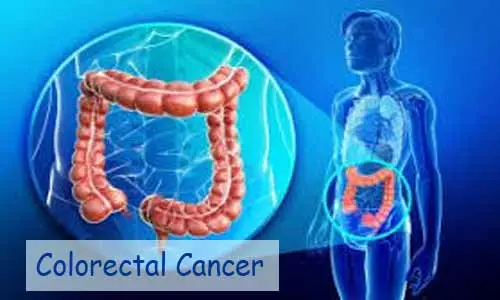- Home
- Medical news & Guidelines
- Anesthesiology
- Cardiology and CTVS
- Critical Care
- Dentistry
- Dermatology
- Diabetes and Endocrinology
- ENT
- Gastroenterology
- Medicine
- Nephrology
- Neurology
- Obstretics-Gynaecology
- Oncology
- Ophthalmology
- Orthopaedics
- Pediatrics-Neonatology
- Psychiatry
- Pulmonology
- Radiology
- Surgery
- Urology
- Laboratory Medicine
- Diet
- Nursing
- Paramedical
- Physiotherapy
- Health news
- Fact Check
- Bone Health Fact Check
- Brain Health Fact Check
- Cancer Related Fact Check
- Child Care Fact Check
- Dental and oral health fact check
- Diabetes and metabolic health fact check
- Diet and Nutrition Fact Check
- Eye and ENT Care Fact Check
- Fitness fact check
- Gut health fact check
- Heart health fact check
- Kidney health fact check
- Medical education fact check
- Men's health fact check
- Respiratory fact check
- Skin and hair care fact check
- Vaccine and Immunization fact check
- Women's health fact check
- AYUSH
- State News
- Andaman and Nicobar Islands
- Andhra Pradesh
- Arunachal Pradesh
- Assam
- Bihar
- Chandigarh
- Chattisgarh
- Dadra and Nagar Haveli
- Daman and Diu
- Delhi
- Goa
- Gujarat
- Haryana
- Himachal Pradesh
- Jammu & Kashmir
- Jharkhand
- Karnataka
- Kerala
- Ladakh
- Lakshadweep
- Madhya Pradesh
- Maharashtra
- Manipur
- Meghalaya
- Mizoram
- Nagaland
- Odisha
- Puducherry
- Punjab
- Rajasthan
- Sikkim
- Tamil Nadu
- Telangana
- Tripura
- Uttar Pradesh
- Uttrakhand
- West Bengal
- Medical Education
- Industry
Lower exposure to UVB light may increase colorectal cancer risk

Inadequate exposure to UVB light from the sun may be associated with an increased risk of colorectal cancer, particularly in older age groups, according to a study using data on 186 countries, published in the open access journal BMC Public Health.
Researchers at the University of California San Diego, USA investigated possible associations between global levels of UVB light in 2017 and rates of colorectal cancer for different countries and age groups in 2018.
The authors found that lower UVB exposure was significantly correlated with higher rates of colorectal cancer across all age groups from 0 to over 75 years in people living in the 186 countries included in the study. The association between lower UVB and risk of colorectal cancer remained significant for those aged above 45 after other factors, such as skin pigmentation, life expectancy and smoking were taken into consideration. Data on these factors were available for 148 countries.
The authors suggest that lower UVB exposure may reduce levels of vitamin D. Vitamin D deficiency has previously been associated with an increased risk of colorectal cancer. Future research could look directly at the potential benefits on colorectal cancer of correcting vitamin D deficiencies, especially in older age groups, according to the authors.
Raphael Cuomo, co-author of the study said: "Differences in UVB light accounted for a large amount of the variation we saw in colorectal cancer rates, especially for people over age 45. Although this is still preliminary evidence, it may be that older individuals, in particular, may reduce their risk of colorectal cancer by correcting deficiencies in vitamin D."
The authors used UVB estimates obtained by the NASA EOS Aura spacecraft in April 2017 and data on colorectal cancer rates in 2018 for 186 countries from the Global Cancer (GLOBOCAN) database. They also collected data for 148 countries on skin pigmentation, life expectancy, smoking, stratospheric ozone (a naturally-occurring gas that filters the sun's radiation) and other factors which may influence health and UVB exposure from previous literature and databases. Countries with lower UVB included Norway, Denmark and Canada, while countries with higher UVB included United Arab Emirates, Sudan, Nigeria, and India.
The authors caution that other factors may affect UVB exposure and vitamin D levels, such as vitamin D supplements, clothing and air pollution, which were not included in the study. They also caution that the observational nature of the study does not allow for conclusions about cause and effect and more work is needed to understand the relationship between UVB and vitamin D with colorectal cancer in more detail.
https://bmcpublichealth.biomedcentral.com/articles/10.1186/s12889-021-11089-w
Hina Zahid Joined Medical Dialogue in 2017 with a passion to work as a Reporter. She coordinates with various national and international journals and association and covers all the stories related to Medical guidelines, Medical Journals, rare medical surgeries as well as all the updates in the medical field. Email: editorial@medicaldialogues.in. Contact no. 011-43720751
Dr Kamal Kant Kohli-MBBS, DTCD- a chest specialist with more than 30 years of practice and a flair for writing clinical articles, Dr Kamal Kant Kohli joined Medical Dialogues as a Chief Editor of Medical News. Besides writing articles, as an editor, he proofreads and verifies all the medical content published on Medical Dialogues including those coming from journals, studies,medical conferences,guidelines etc. Email: drkohli@medicaldialogues.in. Contact no. 011-43720751


